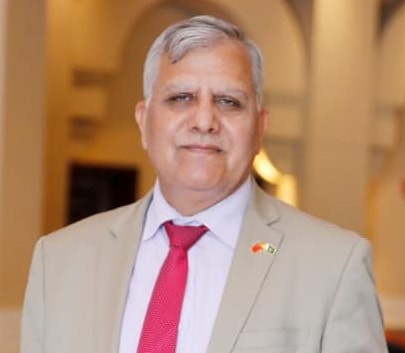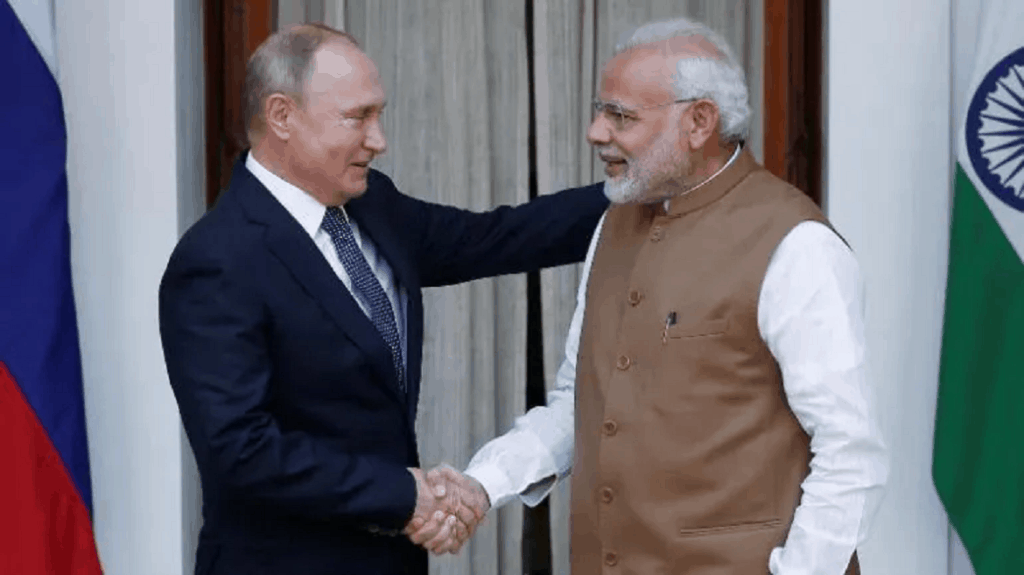By Prof. Engr. Zamir Ahmed Awan
On 24 August, Indian Prime Minister Modi, in a telephonic conversation requested President Putin to save India from isolation in the region. The move reveals the breakdown of India’s Afghan policy. The government’s narrative on Afghanistan stands exposed as deeply flawed.

India was over-involved in Afghanistan with the American-backed government of Ashraf Ghani and Hamid Karzai. India was beneficiary of the Afghan war, as it was getting contracts for big projects worth billions of dollars and also getting trade concessions from the Afghan Governments. Indian products were dominated in the Afghan market whereas India was exploiting Afghan natural resources.
In addition to economic benefits, India was also a beneficiary of political and diplomatic concessions. India maintained 17 consulates along with the borders of Pakistan in Afghanistan. Thousands of Indian nationals were found in various activities in Afghanistan. But the Afghan debacle has changed geopolitics completely. India was among the first few countries to leave Afghanistan. Indian embassy was shut down and all diplomats and staff were evacuated, leaving common Indian citizens helpless in Afghanistan.
Afghanistan was the last country where Indians were feeling comfort, because, with all other neighboring and regional countries, India was facing hostilities and rivalries. There are seven countries as neighbors of India, which include: Bangladesh, China, Nepal, Maldives, Myanmar, Pakistan, and Sri Lanka. All of them having disputes with India and are at hostile status. India was facing isolation in the whole region already.
Historically, during the cold war, India was beneficiary of Russian support and assistance in almost all aspects, including Economic, Trade, Industry, Defence, Education, Science & Technology, and diplomatic as well as political. But, after the disintegration of the USSR n 1991, India started looking toward America. Russia has always been open to cooperation with India but the Modi government prioritized India’s partnership with the US.
US started to give importance to India gradually. Today, India is the largest beneficiary of US aid and assistance just after the state of Israel. Indi a has become the “Major Defense Partner” and strategic alliance, especially in Quad. Even after India joined the American club, Russia helped India to join SCO, yet, India joined Quad, which is obviously an anti-China and Anti-Russia alliance.
Afghan debacle has changed the whole scenario of regional politics. It seems that the US may be out of this whole region completely. India is feeling isolation and seeking Russian help to overcome it. India begins to realize that the road to regional peace and prosperity lies through old tried and tested soul mate Russia, rather than her new faraway romance America, through SCO, not the Quad.
Russia will look after its own national interests, and evaluate American threats through India and then might help if feasible. Russia might prioritize Afghan peace first, as instability and unrest in Afghanistan were a permanent threat to the whole region and a significant obstacle in the development of the whole region.
Russia and China are eager to develop the whole region, but the major hindrance was the Afghan war and American presence in Afghanistan. Russia takes a sensible and smart approach toward relations with India and Pakistan. In the Russian calculus, Pakistan figures as a serious partner with the potential to help advance some of Russia’s core interests in the Eurasian region in a way that India never would or could do, given its quasi-alliance with the US.
India’s policies increasingly grate against Russia’s vital interests and core concerns. India is traveling in the Quad vehicle although that platform is a template of the United States’ dual containment strategy toward China and Russia. Time and again, the Russian leadership at the highest level has repeatedly cautioned New Delhi that Moscow is unhappy with the US efforts to create a bloc of countries in the “Indo-Pacific” to contain China and Russia. But Russia’s concerns not only fell on deaf ears but the Modi government is openly ecstatic that the Quadrilateral Security Dialogue is getting institutionalized with regular summit-level meetings.
After the US withdrawal from Afghanistan, it is expected that stability and peace might return to Afghanistan. Trade routes through Afghanistan may become active and enhance economic activities, leading the whole region to develop at a much faster pace.
Author: Prof. Engr. Zamir Ahmed Awan – Sinologist (ex-Diplomat), Editor, Analyst, Non-Resident Fellow of CCG (Center for China and Globalization), National University of Sciences and Technology (NUST), Islamabad, Pakistan.
(This is an opinion article. The views expressed belong only to the author and the publication of the article does not necessarily imply the endorsement of its content by World Geostrategic Insights).







